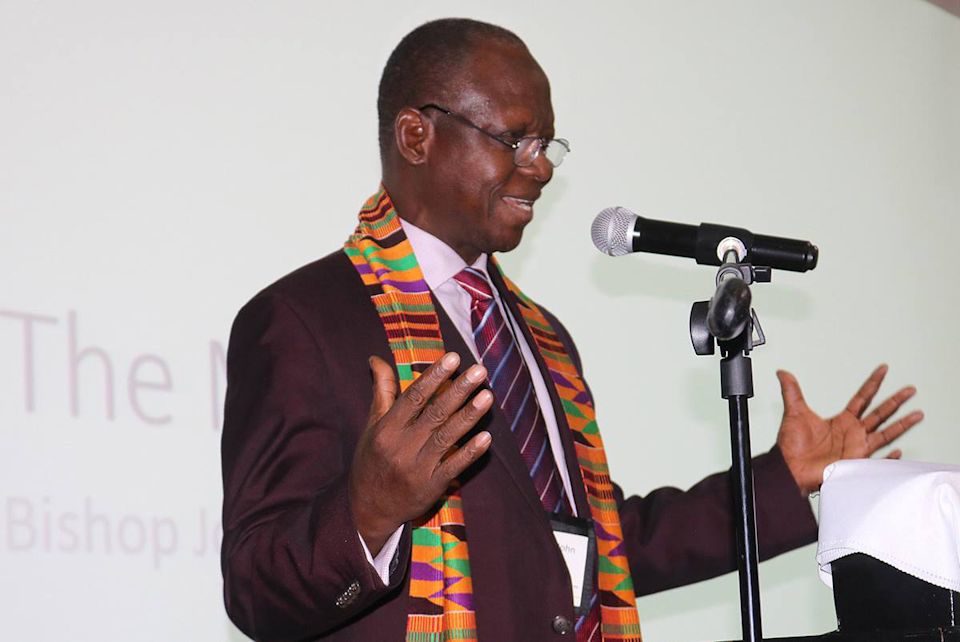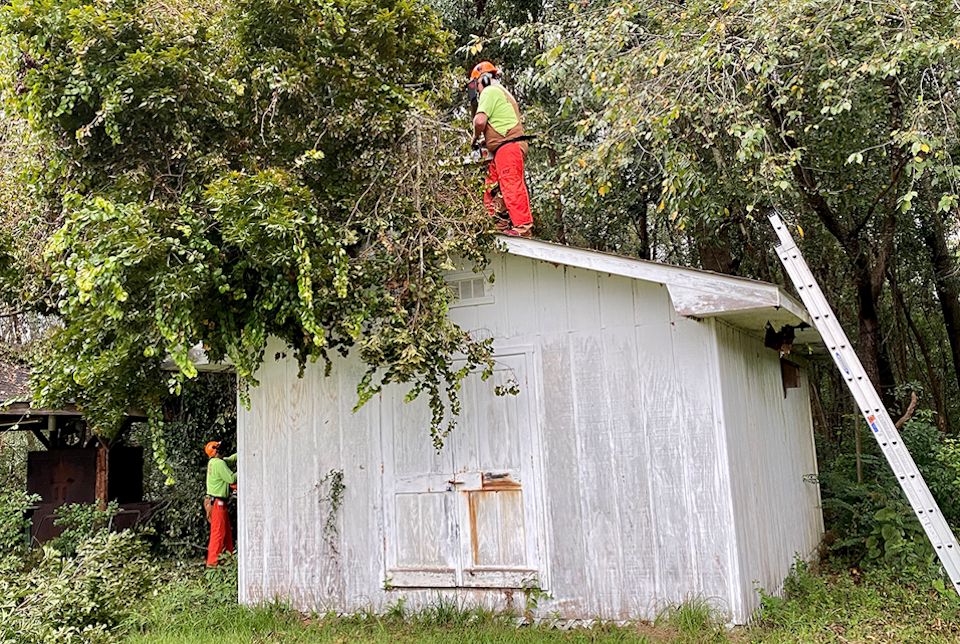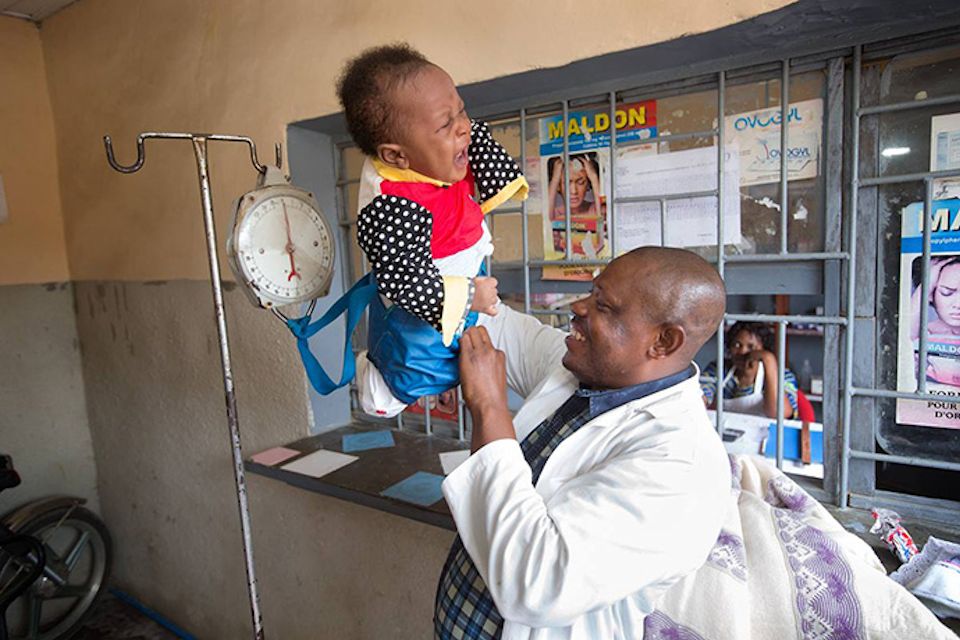The pandemic has not stopped UMCOR from doing disaster response training in 2020. UMCOR was able to conduct 72 mostly remote sessions that reached 1,287 individual volunteers.
LINDA BLOOM
UM News
In a year when one disaster seemed to follow another, the United Methodist Committee on Relief’s longtime investment into the training and support of church members who respond — both in the U.S. and globally — is paying off.
As directors of UMCOR and its parent agency, the United Methodist Board of Global Ministries learned during their annual meetings, UMCOR currently is working 38 active grants of $19 million in the U.S. and has supported responses to 99 unique emergencies so far in 2020.
“If that sounds like a large number, it is,” said Lara Martin, interim director of U.S. disaster response for UMCOR.
The pandemic was both a complicating factor and “a silver lining” as online presentations were perfected for disaster response training events at the conference level. In the end, UMCOR was able to conduct 72 mostly remote trainings that reached 1,287 individuals, Martin told the relief agency’s directors during their Oct. 28 virtual meeting.
Two other significant milestones were announced Oct. 28, then celebrated at the Nov. 12 meeting of Global Ministries’ board of directors.
The denomination’s Abundant Health campaign, led by the Global Health unit of Global Ministries, exceeded its goal of reaching 1 million children with lifesaving interventions between 2016 and 2020. “Through the support of our donors, partners, and board members, we reached 1,075,732 children by the end of September 2020,” the Global Health report said.
Affiliated with the United Nations program, “Every Woman Every Child: The Global Strategy for Women’s, Children’s and Adolescent’s Health,” the Abundant Health campaign focused on communities, primarily in Africa, with high child mortality rates from preventable causes.
An Africa agricultural program is in development, a follow-up to the first-of-its-kind agricultural summit in January 2019 sponsored by Global Ministries and UMCOR, with representatives from all African countries where The United Methodist Church is in mission.
During that summit, Sierra Leone Bishop John K. Yambasu, vice president of Global Ministries, said the church in Africa has the potential of becoming self-sustaining if it develops its vast land into viable commercial enterprises.
Yambasu died tragically in an August car accident, and the program will be named in his honor. An initial agricultural grant of $300,000 for Sierra Leone is expected to be approved at the December UMCOR board meeting.

The mission agency’s work in disaster relief, health, and sustainability continues even in the face of budget cuts and staff reductions over the past few years.
The Asian tsunami in late 2004 and Hurricane Katrina in the U.S. in 2005 generated $110 million in donations for UMCOR’s response. But that level of funding has changed, said Roland Fernandes, top executive for Global Ministries and UMCOR.
“There’s been a decline in income; that’s one reality we’ve got to face,” he said during the Oct. 28 meeting, where UMCOR directors approved $1.15 million in new grants and authorized $6.4 million in disbursements.
In the U.S., the largest disaster response grant was $370,000 to the Alabama-West Florida Conference to respond to the damage left by Hurricane Sally in September.
As with many U.S. disasters, Early Response Teams were the first outside volunteers to assist with United Methodist relief work in Alabama-West Florida. The South Carolina Conference, for example, sent an ERT team each week from Sept. 21-25 and Sept. 28-Oct. 2.
The project using the UMCOR grant will focus on unmet home repair needs in rural Marlow, an unincorporated community near Fish River, Alabama, in south Baldwin County, which has a large Hispanic population. In total, 37 households will receive reconstruction assistance.
United Methodist churches near Marlow have supported the initial hurricane response by providing food, toiletries, and cleaning supplies and serving more than 300 hot meals daily.
However, the combined effect of the COVID-19 pandemic, the continuing long-term recovery of Hurricane Michael, widespread damage from Sally “and the unprecedented number of disasters” means that contractors will be hired to complete much of the repair rebuilding work.
The conference does hope to recruit and safely house volunteer teams to assist an additional 26 households.
In Michigan, UMCOR provided a $10,000 solidarity grant at the outset of clean-up efforts after the Great Lakes Bay Region flood in May. In August, key personnel were hired to walk alongside clients as they journey toward a “new normal.” Five case managers are on the job across three Michigan counties, funded by UMCOR ($100,000), The Midland Area Community Foundation ($100,000), and Saginaw Community Foundation ($50,000). Before their first calls were made to clients, UMCOR trained all five case managers in best practices.
A total of $180,978 was approved for large international disaster response grants, including $81,605 to the Davao Episcopal Area disaster management office to mitigate flooding risk. The constructing of four pedestrian bridges will allow residents of Barangay Lamlahakby in Mindanao, Philippines, to safely evacuate and remain connected to essential services.
That pedestrian bridge project is an example of the type of international mitigation programming that UMCOR hopes to expand in 2021, said Katie Hills Uzoka, senior manager for international disaster response.
Overall, her unit awarded 35 grants in 16 countries this year, totaling more than $2.9 million, and closing 21 completed projects, she said. “A majority of our responses have been to cyclones and flooding,” she added.
Directors approved $607,040 in Global Health grants in Africa for Imagine No Malaria, maternal and child health, and the strengthening of United Methodist health systems.

In 2020, the Sheltering in Love Rapid Response program for COVID-19 relief provided over $2.3 million in 230 grants in 54 episcopal areas, 43 countries, and 43 U.S. states and territories.
Migration continues to be a focus for The United Methodist Church, and to illustrate that work, the Rev. Jack Amick used a “gaps, maps and light” approach that also allows for flexibility in a time of pandemic.
The “maps” part includes a framework for providing goods and services in different locations — on either side of the U.S.-Mexico border; in Latin American countries where churches have set up ministries to assist migrants; or even in a refugee camp in South Sudan. It also can mean, where possible, helping transport migrants or displaced persons to connect them with relatives.
Ministry to migrants has continued during the pandemic, but sometimes “in ways they didn’t expect,” Amick said in an interview with UM News. In some cases, churches have set up ministries to assist migrants who have to stay and quarantine.
The U.S. government's changes related to asylum-seekers and the U.S. public health mandate to close its borders — leaving “thousands of people to be stuck in really bad conditions in Mexico” — have impacted migrant ministries near the border, Amick noted.
A ministry in the Rio Grande Valley “is retooling to find ways they can help undocumented people in their area,” while services at the border are suspended, he said. That might include identifying people who would benefit from skills development and helping them attend community college.
Other examples of retooling to fill gaps include helping church-related shelters for asylum seekers on the U.S side of the border retain staff and capacity. A commercial refrigerator for fresh vegetables for the Holding Institute, a United Methodist Women national mission institution in Laredo, TX, was purchased.
An UMCOR grant to Church World Service provides “light” as it supports a call system for information for asylum seekers. In recent months, Amick explained, the call system has become a COVID hotline for undocumented immigrants seeking advice or translation help about services available to them.
Justice for Our Neighbors — a United Methodist-related program that provides immigrants and asylum-seekers with legal assistance — also has kept its work going during the pandemic.
Executive director Rob Rutland-Brown told UMCOR directors that new sites in Lexington, Kentucky, and Fayetteville, North Carolina, were opened in 2020. The program currently is working with teams planning new locations in the Delaware Valley and Texas.
Last Updated on October 31, 2023

